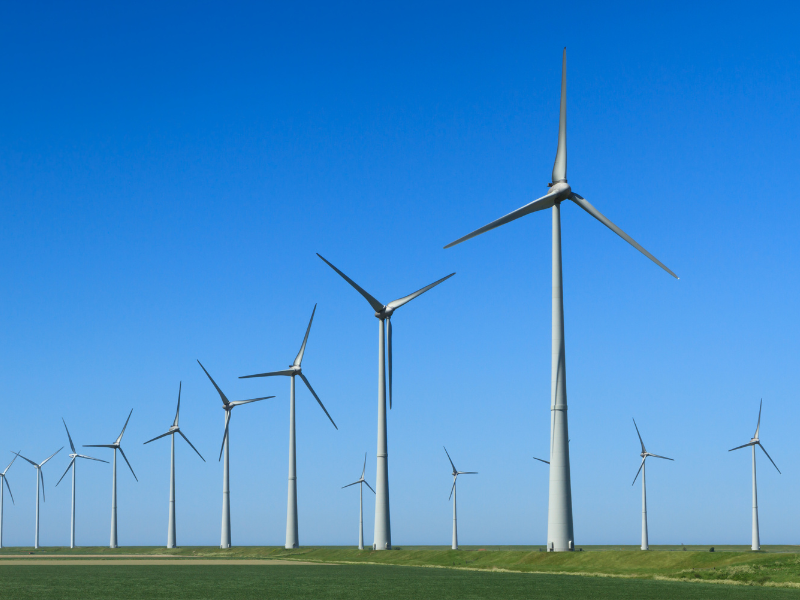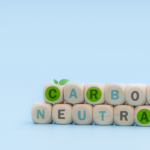Today, the world is facing a crucial issue – the adverse effects of climate change. As a result, there has been an increasing global shift towards clean energy solutions and their advantages. Clean energy refers to renewable energy sources that do not harm the environment or deplete natural resources. In this comprehensive guide, we will explore various clean energy solutions and delve into their numerous advantages. From solar power to wind energy, we will explore the technologies and benefits that make these solutions crucial for a sustainable future.
Solar Power: Harnessing Sunlight for a Brighter Future
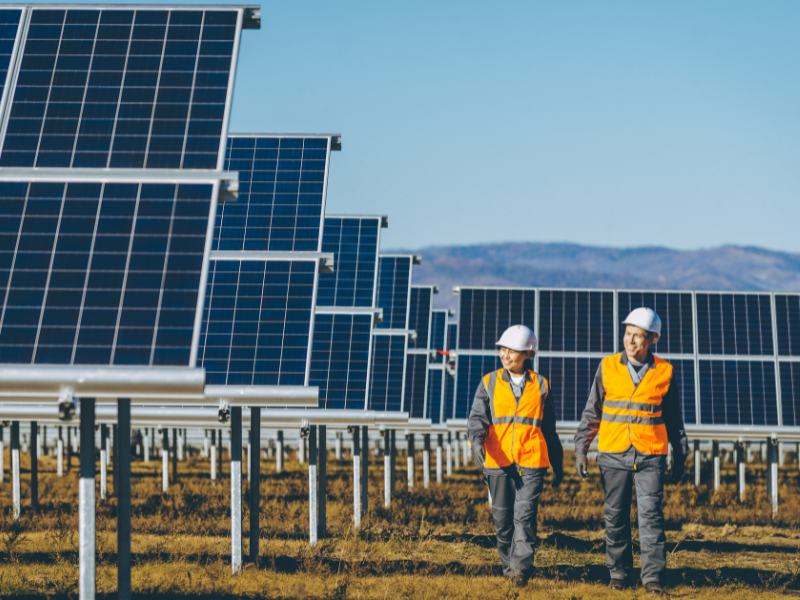
Solar power is a clean energy solution that harnesses the abundant energy of the sun and converts it into usable electricity. By utilizing photovoltaic (PV) panels, solar power has the potential to revolutionize the energy industry while minimizing environmental impact.
Advantages of Solar Energy
Reducing Carbon Emissions
Solar power significantly reduces carbon emissions compared to fossil fuel-based energy sources. The sun provides an unlimited source of energy, and harnessing it reduces reliance on finite resources and minimizes the release of greenhouse gases into the atmosphere.
Financial Savings
By investing in solar energy, individuals and businesses can enjoy long-term financial savings. Solar panels have a lifespan of 25-30 years, allowing for decades of reduced energy bills. Additionally, excess energy can be sold back to the grid, potentially generating income for solar energy system owners.
Energy Independence
Solar power provides individuals with the opportunity to become energy independent. By generating their own electricity, households and businesses can reduce their reliance on traditional power grids. In remote areas, solar power offers a sustainable and reliable energy source where traditional electricity infrastructure may be lacking.
Wind Energy: Capturing the Power of the Wind

Wind energy is another clean energy solution that utilizes the power of the wind to generate electricity. Wind turbines are strategically placed in areas with high wind speeds, harnessing the kinetic energy and converting it into usable electrical energy.
Advantages of Wind Energy
Clean and Renewable Source
Wind energy is a clean and renewable energy source that produces zero greenhouse gas emissions. By harnessing the power of the wind, it contributes to reducing the reliance on fossil fuels, thereby mitigating climate change and improving air quality.
Cost-Effectiveness
Wind energy has become increasingly cost-effective over the years, making it a competitive option compared to traditional energy sources. Continuous technological advancements and economies of scale have reduced the cost of wind turbines and increased their efficiency, making wind energy an attractive investment.
Job Creation
The wind energy industry offers significant job opportunities. From manufacturing wind turbines to installation and maintenance, a variety of skilled and technical jobs are created, boosting local economies and providing employment opportunities in rural and coastal areas.
Hydropower: Tapping into the Power of Water
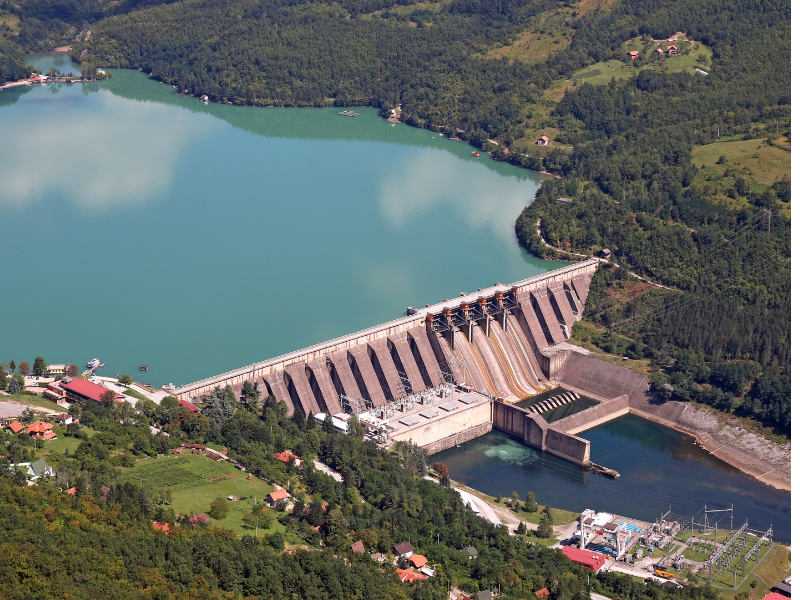
Hydropower harnesses the natural power of water to generate electricity. By capturing the energy of flowing or falling water, hydropower contributes to a sustainable energy future while minimizing environmental impact.
Advantages of Hydropower
Reliable and Predictable Source
Hydropower is a reliable and predictable source of energy since it relies on natural water resources, such as rivers and dams. Unlike other renewable energy sources, such as solar or wind, hydropower generation is not dependent on weather conditions, ensuring consistent electricity production.
Zero Emissions
Hydropower is a clean energy solution that produces zero greenhouse gas emissions during operation. By utilizing the gravitational potential energy of water, hydropower does not contribute to air pollution or harm the environment, making it a sustainable energy option.
Water Management and Irrigation
Hydropower projects often involve the construction of dams and reservoirs, which can provide water for irrigation, flood control, and water supply to communities. These additional benefits make hydropower a versatile solution that addresses multiple needs.
Geothermal Energy: Utilizing Heat from within the Earth

Geothermal energy harnesses heat from within the earth to generate electricity or provide direct heating and cooling. By tapping into the earth’s natural heat, geothermal energy offers a stable and reliable energy source.
Advantages of Geothermal Energy
Constant Source of Energy
Geothermal energy provides a constant source of energy since it relies on the earth’s internal heat, which remains consistent year-round. This stability ensures a reliable energy supply, making it suitable for baseload electricity generation.
Environmentally Friendly Option
Geothermal energy is a clean and renewable energy solution that produces little to no greenhouse gas emissions. The process of harnessing geothermal energy emits only a fraction of the carbon dioxide released by fossil fuels, making it an environmentally friendly choice.
Long-Term Cost Savings
While initial installation costs for geothermal power plants may be higher than traditional fossil fuel-based power plants, geothermal energy offers long-term cost savings. The low operational costs and minimal fuel requirements result in reduced electricity prices over time, making it economically viable.
Bioenergy: Harnessing Energy from Organic Matter
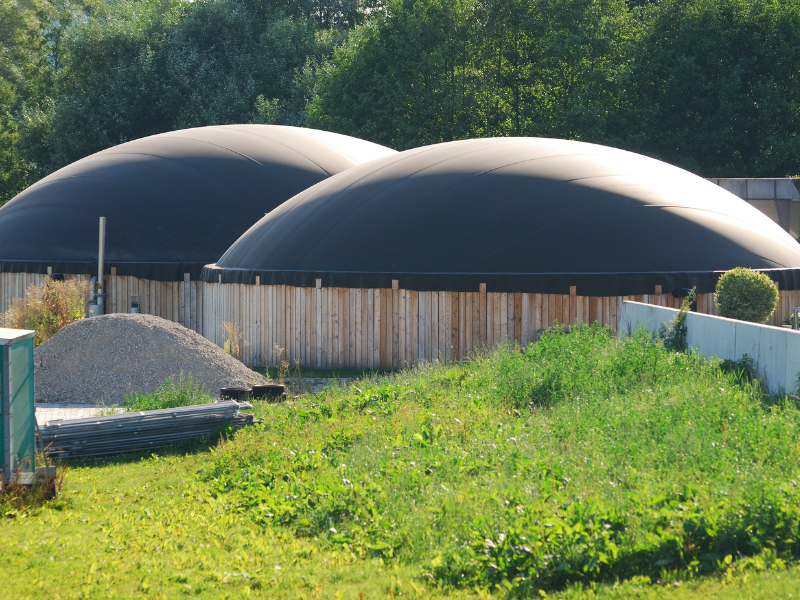
Bioenergy refers to the generation of renewable energy derived from organic matter such as biomass, waste, and biofuels. By converting organic materials into usable energy, bioenergy provides a sustainable solution for electricity production and heating.
Advantages of Bioenergy
Reduced Greenhouse Gas Emissions
Bioenergy reduces greenhouse gas emissions by utilizing organic waste or biomass that would otherwise decompose and release methane, a potent greenhouse gas. By converting these materials into energy, bioenergy mitigates climate change and reduces environmental impact.
Waste Reduction and Management
Bioenergy facilities contribute to waste reduction and management by converting organic waste into useful energy. This approach helps divert waste from landfills, decreases methane emissions, and promotes sustainable waste management practices.
Versatility and Flexibility
Bioenergy is a versatile energy solution that can be adapted to various applications, including electricity generation, heating, and transportation. With advancements in biofuel technology, bioenergy holds significant potential for achieving a more sustainable and carbon-neutral future.
Conclusion
Clean energy solutions offer numerous advantages that are vital in combating climate change and ensuring a sustainable future for generations to come. Solar power, wind energy, hydropower, geothermal energy, and bioenergy all play crucial roles in reducing carbon emissions, promoting renewable energy, and creating a cleaner and healthier environment. By embracing these clean energy solutions and leveraging their advantages, we can pave the way towards a more sustainable and environmentally conscious society.
